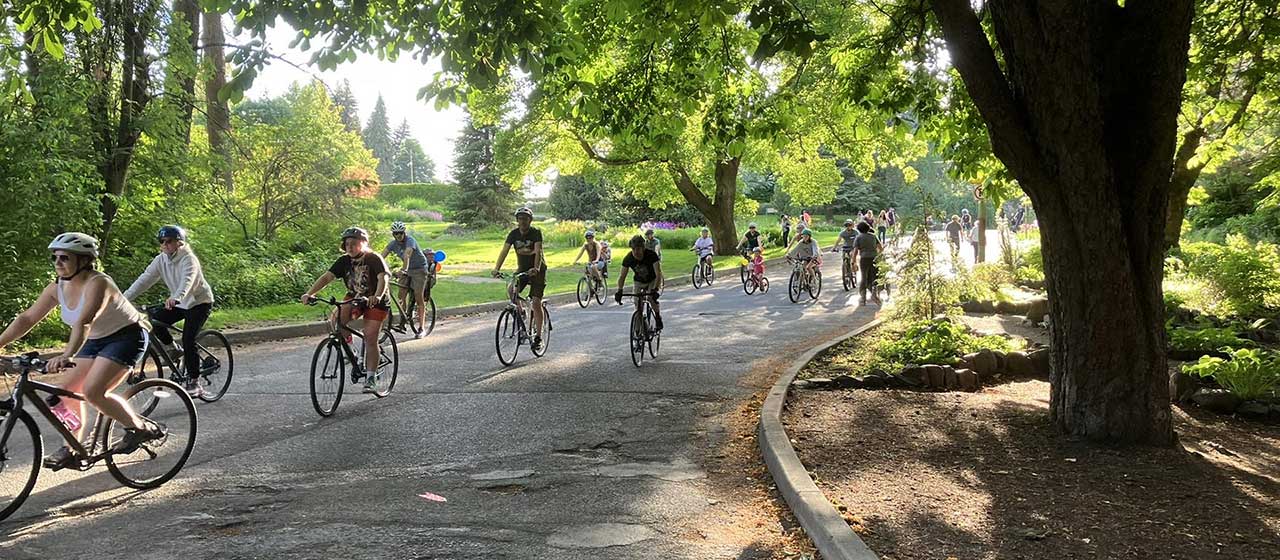Bicycle Priority Network

Project Overview
A Bicycle Priority Network (BPN) maps a fully connected network of safe, comfortable, all-ages bicycle routes connecting people to almost anywhere they want to go in the city. For Spokane, defining a BPN supports the development of future goals and policies in the Comprehensive Plan, prioritizes bicycle infrastructure on specific streets when the street network is being improved or redesigned and assists in project selection for grant funding opportunities.
Project Scope
The City of Spokane is working with a consultant team to establish a scoring framework and draft a map of high-scoring routes from the framework which will then be released to the Bicycle Advisory Board and the broader community to obtain feedback. Major project components include:
- Creating a Prioritization Framework for route scoring.
- Developing a draft Bike Priority Network map and gathering community input.
- Producing Network Development Principles to ensure consistency in future Bike Priority Network work.
- Finalizing the Bike Priority Network map.
Following this project, subsequent public involvement will seek feedback to consider the formal adoption of the Bicycle Priority Network as one component of the upcoming Periodic Update of the City’s Comprehensive Plan.
Learn More About Bicycle Priority Networks
Supporting safe travel by bicycle depends on providing a connected network of high-quality routes. The US Department of Transportation (USDOT), Federal Highway Administration (FHWA), and National Association of City Transportation Officials (NACTO) recognize this in recent research and design guidance:
- Achieving Multimodal Networks – FHWA, 2016
- Guidebook for Measuring Multimodal Network Connectivity – FHWA, 2018
- Bikeway Selection Guide – FHWA, 2019
- Complete Connections – NACTO, 2023
Using this research and guidance, North American cities applied these principles to plan priority networks for safe multi-modal travel by people of all ages and abilities. Notable examples include Edmonton, Alberta, which identified a District Connector Network of high-priority bikeways, and Washington, DC, which conducted an intensive prioritization study to identify a Bicycle Priority Network. These networks are now under construction.
Example networks:
- Planning: Edmonton Bike Plan
- Implementation: Edmonton Active Transportation Network Expansion
- Planning: Washington, DC Bicycle Priority Network
- Implementation: Washington, DC Protected Bike Lane Expansion
The City of Spokane's Bicycle Priority Network study builds on this rich knowledge base of national-level guidance and practical city-level implementation, supporting the consultant team’s expert network analysis with community and advisory board feedback.
Project Documents
- Bicycle Priority Network Development Principles (PDF 372 KB)
- Priority Network Documentation (PDF 251 KB)
Contact Information
Tyler Kimbrell, AICP
Assistant Planner II
tkimbrell@spokanecity.org
Colin Quinn-Hurst, AICP
Associate Planner
cquinnhurst@spokanecity.org
